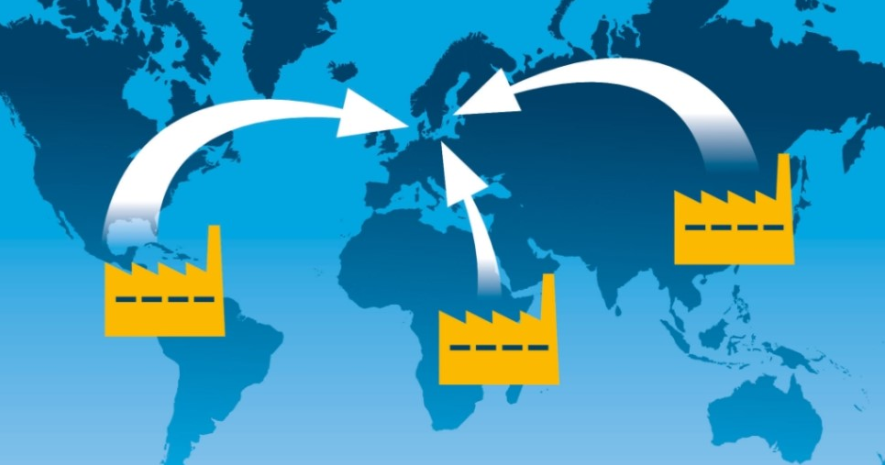Reshoring is a policy that brings domestic manufacturing companies that have entered overseas markets back to Korea. Recently, the global supply chain has been in total confusion due to COVID-19, moving a lot of countries to reshoring. The global supply chain is the international division of labor which takes place around the world, such as the procurement of raw materials and production of parts. The Korean government is moving towards the efforts of revitalizing and reshoring. However, Korean companies said that reshoring is nonsense in Korea. Why Korean companies in support of reshoring?
The first reason is the high cost of investing in foreign markets. Most manufacturing companies operating abroad are large. Building factories abroad usually cost hundreds of billions of won. COVID-19 is a disease that has brought about a pandemic, but it has not caused companies hundreds of billions of won in financial losses.
The second reason is that the benefits of overseas markets are better than the Korea market. The biggest reason for Korean companies entering foreign markets is because of cheap wages and low corporate taxes. In Southeast Asian countries, including Vietnam and Malaysia, labor costs and electricity costs for plant operations are half the price of Korea. In addition, Korea's corporate tax ranks seventh among 36 OECD member countries as of 2018. The U.S. and Japan have lower corporate taxes than Korea. Nonetheless, the U.S. and Japan are also making efforts for the convenience of their companies by lowering corporate taxes. Korea has a high corporate tax rate of 25 percent. Companies' perception of reshoring is bound to be bad as the Korean government is not planning to cut corporate tax rates significantly in the future.
The third reason is that the Korean market has become a high-cost structure. This means that corporate management in Korea is inefficient. Korea has no natural resources and no original technology. Also, Korean companies have to eventually advance abroad into foreign markets because the domestic market is small. If it is necessary to advance abroad anyway, it is wise to change the cost structure by building factories overseas. Companies have to overcome many challenges to produce goods in Korea. Korean companies have no reason to deal with high logistics costs and labor costs stemming from the rise in the minimum wage. Also, the companies have to bear the rigidity of the labor market, the 52-hour workweek, the shift of irregular workers to regular workers, and the anti-business sentiment of the government. In addition, given Korea's political and economic environment, the companies may run into controversy over corporate benefits.
The fourth reason is fear of the Chinese government’s retribution. Korea's biggest market is China. However, the Chinese government does not prefer to import Korean goods. The Chinese government wants companies from other countries to create jobs and support in China. Many companies are already trying to escape from China because of the U.S.-China trade dispute. Under these circumstances, Korean companies can receive penalties if those leave the Chinese market for reshoring. If this happens, then, Korean companies may have to give up the Chinese market.
Currently, successful examples of reshoring come from Japan and the United States. The U.S., Japan, and Korea have different economic environments. Since Japan and the U.S. have large domestic markets and develop their own technology, so reshoring can be successful by using only tariff policies. The U.S. is taking steps towards reshoring by offering tax benefits, free land provisions, corporate tax cuts, and imposing tariffs on products imported from overseas. Japan has a steady demand that supports the production of technology. Companies in other countries are forced to purchase Japanese products even if prices go up by attracting factories to Japan, not overseas.
Korea’s market does not have the strength of the United States and Japan. For reshoring to succeed in Korea, existing corporate regulations must be greatly eased. The Korean government has to provide incentives for reshoring. Companies that have left to avoid high labor costs, production costs, and labor rigidity may then return. As it is now, the
 |
| ▲ The reshoring phenomenon
(Source: https://m.blog.naver.com/db111369/221055815028) |
reshoring policy cannot succeed in Korea. Despite the Korean government's recent announcement to implement a reshoring policy, LG Electronics has decided to relocate overseas. Industries such as LG Electronics and others said that overseas relocation was inevitable. If easing existing regulations does not happen first, the reshoring policy will not be effective.
By Seo Seong-il, reporter qlvmfl99@naver.com
<저작권자 © The Campus Journal, 무단 전재 및 재배포 금지>

 Shrinkflation, Consumer Deception
Shrinkflation, Consumer Deception




